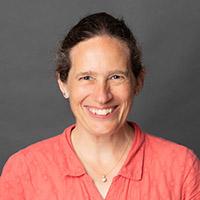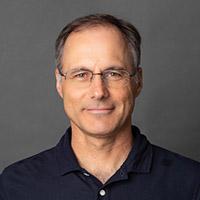Mathematical Logic
Model theory is a branch of logic that studies the underlying patterns of algebraic and geometric structures. At McMaster, faculty members work in pure and applied model theory, such as classification of equational classes, stability theory, and applications to valued fields and real analytic geometry.
Information Box Group
Bradd Hart
Professor
Research Area: Mathematical Logic
Research Profile: Model theory and mathematical logic.
My work has been primarily in model theory and to some degree in set theory. Model theory is the study of the construction and classification of structures inside some specific class of mathematical objects. It has both pure and applied sides which interact heavily. In applied model theory one takes some mathematical object in a given language, say the real numbers in the language of fields with exponentiation, and very carefully analyzes the sub-sets which are definable. This type of elimination theory has several applications in number theory and real algebraic geometry. An example of my work in this area is the first article listed below where we study certain model theoretic conditions in the context of varieties of algebras.
Pure or abstract model theory deals with several issues. The first, which sounds vaguely philosophical, is the question, “Is it possible to know if two structures are not isomorphic?” This question is at the heart of classification theory. On the more practical side is stability theory which starts out by severely restricting the classes of structures one looks at so as to have a robust dimension theory available. Luckily common mathematical objects such as modules and algebraic groups are examples of stable structures.
Deirdre Haskell
Professor
Research Area: Mathematical Logic
Research Profile: Model theoretic algebra
I am interested in applying the techniques of model theory, which studies algebraic structures in a very general setting, to the examination of particular algebraic structures, especially valued fields.
Patrick Speissegger
Professor
Research Area: Mathematical Logic
Research Profile: Model Theory and Real Analytic Geometry
Matthew A. Valeriote
Emeritus Professor
Research Area: Mathematical Logic
Research Profile: Mathematical logic,universal algebra and computational complexity
Mathematical logic,universal algebra and computational complexity I am involved in the study and classification of general algebraic systems. This area of mathematics is often called Universal Algebra and got its start in the 1930s. In order to compare and classify algebras they are often grouped together according to the equations that they satisfy.
Borrowing and expanding on techniques and ideas from mathematical logic, classical abstract algebra, and also from newer branches of mathematics such as lattice theory and category theory, powerful tools have been developed to help organize and understand the structure of varieties (classes of algebras defined by equations) and the algebras they contain. Recent advances in the field have opened up a new area of study dealing with the local structure of finite algebras. This new local theory of finite algebras has not only been useful in solving several longstanding problems but it has also suggested a number of new and challenging research problems.
My current research program involves studying the computational complexity of subclasses of the Constraint Satisfaction Problem (CSP). Many well known complexity problems, such as graph coloring or Boolean satisfiability, can be naturally presented within the vast CSP framework. Recent work of Bulatov, Jeavons, Krokhin and others has established a strong connection between the CSP and universal algebra and some of the important open problems in the field can be expressed in purely algebraic terms.
Bradd Hart
Professor
Research Area: Mathematical Logic
Research Profile: Model theory and mathematical logic.
My work has been primarily in model theory and to some degree in set theory. Model theory is the study of the construction and classification of structures inside some specific class of mathematical objects. It has both pure and applied sides which interact heavily. In applied model theory one takes some mathematical object in a given language, say the real numbers in the language of fields with exponentiation, and very carefully analyzes the sub-sets which are definable. This type of elimination theory has several applications in number theory and real algebraic geometry. An example of my work in this area is the first article listed below where we study certain model theoretic conditions in the context of varieties of algebras.
Pure or abstract model theory deals with several issues. The first, which sounds vaguely philosophical, is the question, “Is it possible to know if two structures are not isomorphic?” This question is at the heart of classification theory. On the more practical side is stability theory which starts out by severely restricting the classes of structures one looks at so as to have a robust dimension theory available. Luckily common mathematical objects such as modules and algebraic groups are examples of stable structures.
Bradd Hart
Professor
Research Area: Mathematical Logic
Research Profile: Model theory and mathematical logic.
My work has been primarily in model theory and to some degree in set theory. Model theory is the study of the construction and classification of structures inside some specific class of mathematical objects. It has both pure and applied sides which interact heavily. In applied model theory one takes some mathematical object in a given language, say the real numbers in the language of fields with exponentiation, and very carefully analyzes the sub-sets which are definable. This type of elimination theory has several applications in number theory and real algebraic geometry. An example of my work in this area is the first article listed below where we study certain model theoretic conditions in the context of varieties of algebras.
Pure or abstract model theory deals with several issues. The first, which sounds vaguely philosophical, is the question, “Is it possible to know if two structures are not isomorphic?” This question is at the heart of classification theory. On the more practical side is stability theory which starts out by severely restricting the classes of structures one looks at so as to have a robust dimension theory available. Luckily common mathematical objects such as modules and algebraic groups are examples of stable structures.
Deirdre Haskell
Professor
Research Area: Mathematical Logic
Research Profile: Model theoretic algebra
I am interested in applying the techniques of model theory, which studies algebraic structures in a very general setting, to the examination of particular algebraic structures, especially valued fields.
Deirdre Haskell
Professor
Research Area: Mathematical Logic
Research Profile: Model theoretic algebra
I am interested in applying the techniques of model theory, which studies algebraic structures in a very general setting, to the examination of particular algebraic structures, especially valued fields.
Patrick Speissegger
Professor
Research Area: Mathematical Logic
Research Profile: Model Theory and Real Analytic Geometry
Patrick Speissegger
Professor
Research Area: Mathematical Logic
Research Profile: Model Theory and Real Analytic Geometry
Matthew A. Valeriote
Emeritus Professor
Research Area: Mathematical Logic
Research Profile: Mathematical logic,universal algebra and computational complexity
Mathematical logic,universal algebra and computational complexity I am involved in the study and classification of general algebraic systems. This area of mathematics is often called Universal Algebra and got its start in the 1930s. In order to compare and classify algebras they are often grouped together according to the equations that they satisfy.
Borrowing and expanding on techniques and ideas from mathematical logic, classical abstract algebra, and also from newer branches of mathematics such as lattice theory and category theory, powerful tools have been developed to help organize and understand the structure of varieties (classes of algebras defined by equations) and the algebras they contain. Recent advances in the field have opened up a new area of study dealing with the local structure of finite algebras. This new local theory of finite algebras has not only been useful in solving several longstanding problems but it has also suggested a number of new and challenging research problems.
My current research program involves studying the computational complexity of subclasses of the Constraint Satisfaction Problem (CSP). Many well known complexity problems, such as graph coloring or Boolean satisfiability, can be naturally presented within the vast CSP framework. Recent work of Bulatov, Jeavons, Krokhin and others has established a strong connection between the CSP and universal algebra and some of the important open problems in the field can be expressed in purely algebraic terms.
Matthew A. Valeriote
Emeritus Professor
Research Area: Mathematical Logic
Research Profile: Mathematical logic,universal algebra and computational complexity
Mathematical logic,universal algebra and computational complexity I am involved in the study and classification of general algebraic systems. This area of mathematics is often called Universal Algebra and got its start in the 1930s. In order to compare and classify algebras they are often grouped together according to the equations that they satisfy.
Borrowing and expanding on techniques and ideas from mathematical logic, classical abstract algebra, and also from newer branches of mathematics such as lattice theory and category theory, powerful tools have been developed to help organize and understand the structure of varieties (classes of algebras defined by equations) and the algebras they contain. Recent advances in the field have opened up a new area of study dealing with the local structure of finite algebras. This new local theory of finite algebras has not only been useful in solving several longstanding problems but it has also suggested a number of new and challenging research problems.
My current research program involves studying the computational complexity of subclasses of the Constraint Satisfaction Problem (CSP). Many well known complexity problems, such as graph coloring or Boolean satisfiability, can be naturally presented within the vast CSP framework. Recent work of Bulatov, Jeavons, Krokhin and others has established a strong connection between the CSP and universal algebra and some of the important open problems in the field can be expressed in purely algebraic terms.



